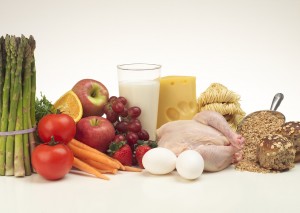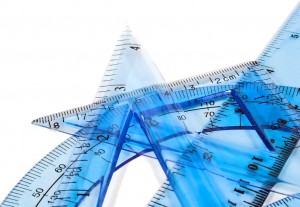 Whether training for a marathon, a triathlon, a 5K, or nothing at all it’s always worthwhile to set healthy eating goals. I would like to tackle the much larger topic of healthy eating over a series of posts and here will be focusing on what the best practices are with regard to meals for the final week before a marathon.
Whether training for a marathon, a triathlon, a 5K, or nothing at all it’s always worthwhile to set healthy eating goals. I would like to tackle the much larger topic of healthy eating over a series of posts and here will be focusing on what the best practices are with regard to meals for the final week before a marathon.
For the past nine weeks I have been averaging somewhere between 30 and 35 miles of running each week and the calories burned during those sessions adds up. On my longest runs, my Polar watch said I burned about 1800 calories so I can fully expect that running a full 26.2 miles will burn at least 2000 calories. I thought a good starting point for this post would be to learn how many calories I should be consuming. According to a basic Caloric Needs Calculator, I need around 1900 calories a day.
Doing a little math (not at all my strong suit), knowing I will burn 2000 calories on Sunday, if I want to maintain my current weight that means this week I should try to consume an extra 285 calories per day bringing my daily intake to 2185. Had I started thinking about my training diet when I started training, I probably would have followed the rule of thumb to add about 100 calories for every mile to my daily diet. Unfortunately, you can’t just randomly add calories; it’s important to know what layers of the food pyramid those calories should be coming from. If I had my way they’d all come from the tip top fats, sweets, and dairy categories.
MarathonRookie.com suggests that 65% of calories should come from good, complex carbohydrates, 10% from low fat and lean proteins, 20-25% from unsaturated fats and all balanced with plenty of vitamins, calcium, and iron. Carbohydrates provide the glycogen necessary to fuel the body through a long run so it seems that if I build up the glycogen stored in my body the week before I will have sufficient fuel to burn on race day.
Unfortunately (or perhaps, fortunately) I am not a calorie counter. I simply eat until I’m full and often until I’m just about stuffed. I like food, what can I say? I also know from experience and from research that it’s not smart to vary the diet too much before race day. The body gets used to processing certain foods and I have no intention of messing with that system before my first marathon. I would, however, like to identify the best balanced diet with the foods I normally eat and with the food already in my kitchen though there are plenty of good marathon recipes out there. Any special recipes or best foods you want to share?
I believe in writing this that I have figured out that my own personal marathon week diet needs to be the right percentages of the food pyramid with types of food my body is already used to. I will err on the side of adding more carbs and do my best to make sure they are complex carbs like cereal, oatmeal, wheat bread, pasta, carrots, and apples. I will also use the day before the run to “carb load” and I admit I’m looking forward to it!
And for future training, I’ll start my diet off at the beginning.
 One of the things I have enjoyed most about having run a marathon is how much I learned along the way. I am very aware that I have barely scratched the surface of most topics related to running and training and I find it encouraging that there is always something new to learn about the sport. Part of running is science and understanding how the body works and how all the muscles work together, and part of running simply personal and figuring out what works best for you.
One of the things I have enjoyed most about having run a marathon is how much I learned along the way. I am very aware that I have barely scratched the surface of most topics related to running and training and I find it encouraging that there is always something new to learn about the sport. Part of running is science and understanding how the body works and how all the muscles work together, and part of running simply personal and figuring out what works best for you.
 There is no question that individual runners and athletes will find the diet, routine, and training that works best for their own goals, pace, and body type. An interesting debate on
There is no question that individual runners and athletes will find the diet, routine, and training that works best for their own goals, pace, and body type. An interesting debate on  Whether training for a marathon, a triathlon, a 5K, or nothing at all it’s always worthwhile to set healthy eating goals. I would like to tackle the much larger topic of healthy eating over a series of posts and here will be focusing on what the best practices are with regard to meals for the final week before a marathon.
Whether training for a marathon, a triathlon, a 5K, or nothing at all it’s always worthwhile to set healthy eating goals. I would like to tackle the much larger topic of healthy eating over a series of posts and here will be focusing on what the best practices are with regard to meals for the final week before a marathon.